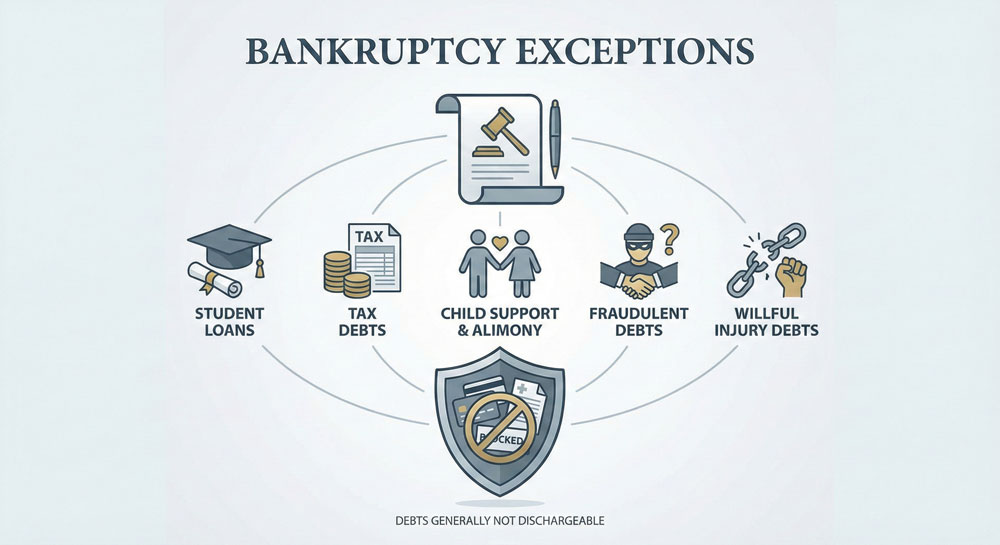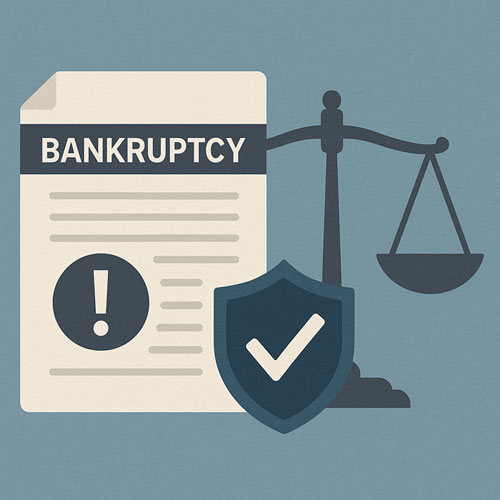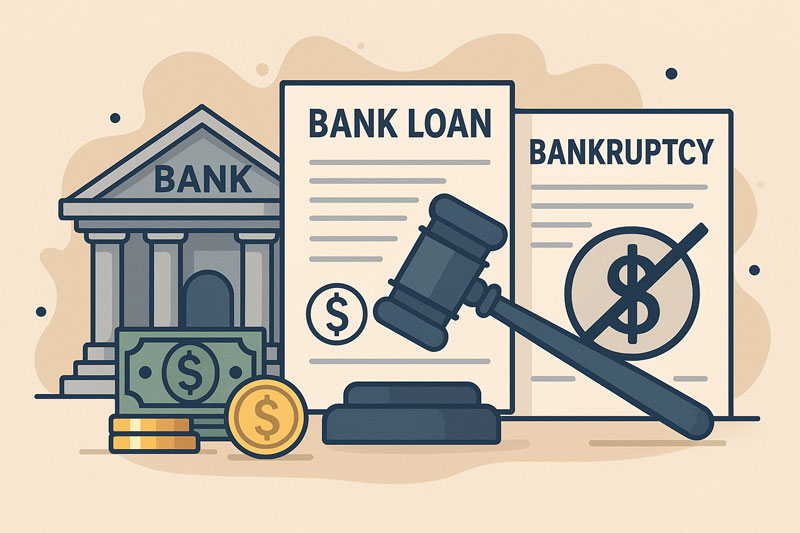Paying Creditors In Bankruptcy
 When you file for bankruptcy protection, a legal entity called the bankruptcy estate is created. Your bankruptcy estate consists of all the property you own. If there are any non-exempt assets in your bankruptcy estate the bankruptcy trustee assigned to your bankruptcy case will use your estate to pay back the creditor’s claims. In order to get paid, each creditor must fill out a proof of claim form, which explains the amount owed, the nature of the debt, and documentations support the creditor’s claim.
When you file for bankruptcy protection, a legal entity called the bankruptcy estate is created. Your bankruptcy estate consists of all the property you own. If there are any non-exempt assets in your bankruptcy estate the bankruptcy trustee assigned to your bankruptcy case will use your estate to pay back the creditor’s claims. In order to get paid, each creditor must fill out a proof of claim form, which explains the amount owed, the nature of the debt, and documentations support the creditor’s claim.
When you file for bankruptcy, whether it be Chapter 7 or Chapter 13, the court will schedule a meeting of creditors or the 341 hearing, which is conducted by the bankruptcy trustee. This brief meeting will have you swear in under oath and answer questions about debts, income, and recent financial transactions. After the meeting of creditors, creditors generally have 90 days from the original date of the 341 hearing to file their proof of claim (government entities get 180 days), and the form should include:
- The bankruptcy case number
- The debtor’s name
- Name of Creditor holding the claim
- The address the creditor wants to receive notice and payment
- The amount and type of claim
- Supporting information to prove the claim valid
Typically the creditors themselves will fill out and submit the proof of claim, but the debtor can also file it on behalf of the creditor. Doing so may not be in your best interest so make sure to ask your Auburn bankruptcy attorney about this before you do so. If a creditor fails to fill out the proof of claim and submit it within the allotted time, they can’t get paid in your bankruptcy.
It’s sometimes the norm for a company or person to not file a proof of claim if you are filing a no-asset Chapter 7 bankruptcy as there won’t be any money or property for them to be rewarded in the bankruptcy. Likewise, if you only owe a small sum the creditor may choose not to bother filing the proof of claim. Once the time period has passed and all proof of claims are approved by the bankruptcy trustee, they will then work to liquidate your assets in a Chapter 7 bankruptcy to pay the creditors. In a Chapter 13 case, the bankruptcy trustee will pay the creditors according to the plan that has been confirmed by the court.
The bankruptcy code is extensive and can be confusing. Filing bankruptcy has long-term financial and personal ramifications. It is always advisable to seek the counsel of a trusted bankruptcy attorney in order to ensure your rights are protected and you are successful in getting a fresh financial start. If you are looking for a bankruptcy attorney in the Auburnarea, please give us a call.
Categorized in: Debt



